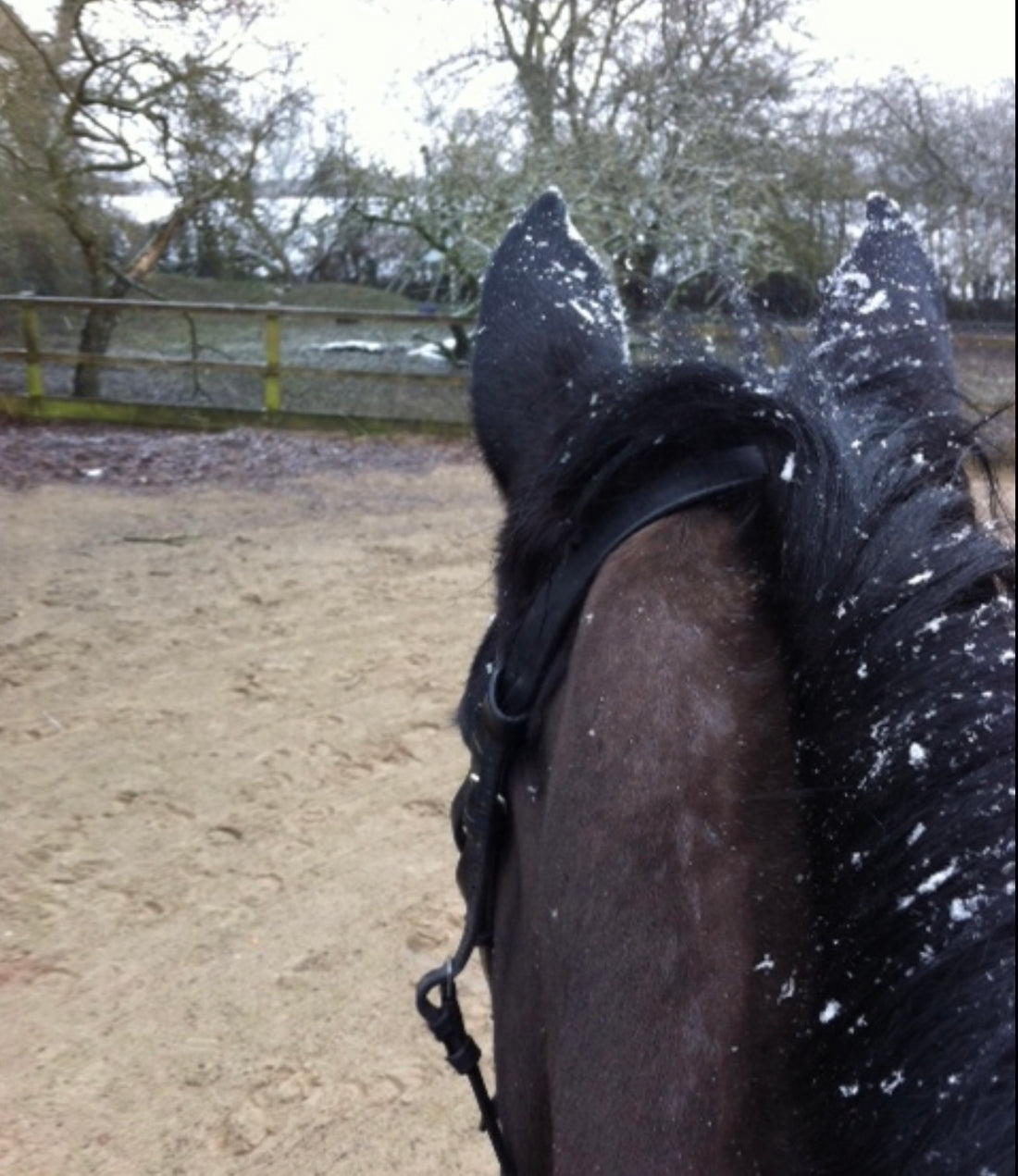As temperatures drop and daylight dwindles, maintaining motivation for training can be a challenge. The cold weather brings extra layers, frozen arenas, and the temptation to stay warm indoors. But winter can also be a season of productive progress if approached with the right mindset and strategies. Here’s how to stay motivated and keep your training on track during the colder months.
1. Set Winter Goals
Winter is an ideal time to focus on specific aspects of your riding without the pressure of competition.
- Skill-building: Choose one or two areas to refine, such as improving your seat, developing your horse’s balance, or working on transitions.
- Long-term planning: Break down your larger goals into smaller, actionable steps to tackle during the season.
Write down your goals and track your progress—it’s a great way to stay inspired when motivation dips.
2. Dress for Success
Cold weather training is much easier when you’re properly equipped.
- For Riders: Invest in insulated breeches, thermal gloves, and waterproof outerwear to stay warm and dry, hand hotties are a must for really cold weather. Layering is key!
- For Horses: Ensure your horse is comfortable with appropriate blankets, quarter sheets, and warm-ups. A warm saddle cloth is a great treat for a horses back, either heated on a radiator or warm up with a hot water bottle.
When you’re warm and prepared, training feels less like a chore and more like an adventure.
3. Get Creative with Your Training
Winter doesn’t have to mean monotonous drills. Incorporate variety to keep you and your horse engaged:
- Groundwork: Focus on exercises like in-hand lateral work, polework, or lunging to build strength and suppleness.
- Pole Exercises: Even a few poles can transform your training sessions, improving rhythm and coordination.
- Short Sessions: Keep rides concise but effective—15-20 minutes of focused work can be just as valuable as a longer session.
Mixing things up prevents boredom and helps you both stay motivated.
4. Embrace Indoor Alternatives
If outdoor riding becomes impractical, use alternative spaces or methods to continue your training:
- Indoor Arenas: If you don’t have access to one, consider renting time at a nearby facility.
- Online Lessons: Virtual coaching can provide fresh insights and exercises to work on to keep you focussed even when conditions aren’t ideal.
- Core Fitness for Riders: Spend time indoors working on your strength, balance, and flexibility, which will directly benefit your riding.
Winter can be an opportunity to develop your skills in ways you might not prioritise during warmer months.
5. Focus on Relaxation and Basics
The off-season is perfect for returning to the fundamentals.
- Work on improving your horse’s relaxation, rhythm, and suppleness.
- Prioritise quality over quantity—achieving softness and connection in just a few steps is more valuable than covering endless laps.
By the time spring arrives, you’ll have a solid foundation to build on.
6. Stay Social and Connected
Motivation often grows when shared with others.
- Find a Winter Riding Buddy: Having a friend to train with makes the cold more bearable and adds accountability.
- Join Clinics: Many trainers offer winter clinics, which are great for learning and staying inspired.
- Engage Online: Share your progress, tips, or winter goals on social media or in dressage communities to stay motivated.
Sometimes, just knowing others are also braving the cold can encourage you to keep going.
7. Be Kind to Yourself and Your Horse
Winter brings unique challenges, so adjust your expectations accordingly.
- If your horse seems less enthusiastic on colder days, opt for lighter sessions.
- Give yourself grace if you need to skip a ride due to extreme weather—consistency over the season matters more than perfection.
Remember, every small effort counts towards your larger goals.
8. Warm-Up and Cool Down Thoroughly
Cold weather makes proper warm-ups and cool-downs even more critical:
- Spend extra time walking at the start of your ride to loosen stiff muscles.
- After your session, ensure your horse is dry and warm before putting on blankets.
A careful approach reduces the risk of injury and ensures your horse stays comfortable.
9. Reward Yourself
Celebrate your commitment to training with small rewards:
- A warm drink after a chilly ride. Take a flask with a hot drink to warm up afterwards.
- New winter gear to make riding more enjoyable.
- Treats for your horse as a thank-you for their efforts.
These little incentives can make winter training something to look forward to.
10. Remember the Bigger Picture
Winter is temporary, but the progress you make during this time will set the tone for your future success. By staying consistent and positive, you’ll emerge from the season stronger, more connected with your horse, and ready to tackle spring competitions with confidence.
What are your favorite winter training tips? Share your ideas and let’s inspire each other to make the most of the season.

